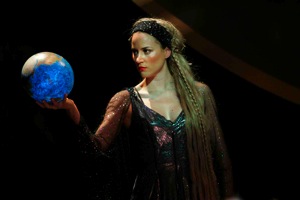The Top
MOON LANDING

Synopsis
NASA’s Apollo Moon Programme has been called the last optimistic act of the 20th century. Twelve men made the longest and most eccentric of all journeys and all were indelibly marked by it.
Of the 12 who have walked on the Moon, only nine are still alive. Soon no-one will know the thrill of gazing back at Earth from another world.
Seen through the eyes of Buzz Aldrin, the second man to walk on the Moon, Edwards' dramatic musical re-telling reveals the human side to making history - from the families left behind to the men who struggled, to return to Earth.
Moon Landing was first presented in September 2007 (reviews in full below) and was nominated for a TMA Award. It is currently being revised and is hoped will go into production early next year.
REVIEWS
of original (2007) production
The Guardian –
‘Houston, I think we have a hit.’ 4****
Conceived, composed and directed by Stephen Edwards, Moon Landing is a musical dramatisation of the Apollo space missions - possibly the most optimistic, hubristic and expensive venture known to man. NASA's attempt to put a man on the moon was pretty ambitious as well.
Edwards and his co-artistic director Karen Louise Hebden have been building up to this with a string of notable Sondheim revivals that established Derby as one of the most productive musical hothouses in the country. The fact that they have now started to grow their own is an exciting development.
This is musical theatre on the grandest scale, with two & half hours of through-composed action, a substantial cast and a lunar landing module that makes Miss Saigon's helicopter seem understated. Yet Edwards manages to permeate the human drama beneath the helmets. He perceptively suggests a parallel between astronauts and actors, all of whom are desperate to assume the starring role. Here the focus falls on Buzz Aldrin, the charismatic loose cannon of the space programme, bitterly resentful about playing second fiddle to Neil Armstrong, and whose later life became mired in alcoholism and depression.
Aldrin is a genuinely intriguing 20th-century hero, and it is in the second half, when he swaps the landing capsule for a bath chair, that the action becomes truly absorbing. For Aldrin, flying into space was the easy part: what he couldn't face were all the celebratory banquets afterwards, and Glenn Carter gives a psychologically astute portrayal of a man who went to the moon, but never fully made it back down to earth.
Many musicals are about reaching for the stars - very few examine the human cost of actually getting there, and Edwards' score is rousing and anguished in all the right places. Houston, I think we have a hit!
The Guardian – ‘Houston, I think we have a hit.’ 4****
Daily Telegraph – ‘This is rather wonderful’ 5*****
The Times - Dark Side of the Moon- 4****

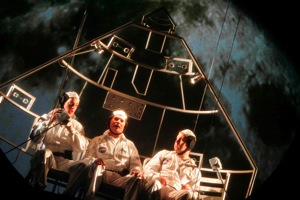
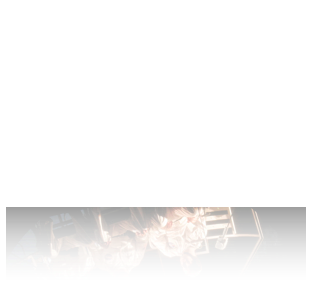
Daily Telegraph –
‘This is rather wonderful’ 5***** -
Dominic Cavendish
In space no one can hear you sing. But you'd still want to, wouldn't you, if you were up there in the heavens, more than a quarter of a million miles away, looking down with awe on the blue planet?
Rather late in the day, someone has had the idea of revisiting the moon landing as a musical. It's called Moon Landing, but don't let the title put you off – in fact, this is rather wonderful.
The man behind it, Stephen Edwards, has been composing for theatre, film and TV for years, but this project may be the one that finally launches him into the wider public consciousness.
Here at last is a musical the average male adolescent could watch without squirming with boredom. The stage is dominated by a mock-up of mission control – with reams of projected video footage and even a sizeable, suspended replica of the Eagle augmenting the scene.
After a countdown to July 1969 first half, Edwards, who also directs, spins the historic moment on its axis to explore its dark side.
Initially contrasting the collective, cerebral aspirations of the men at Nasa with the fretful emotions of their women-folk at home, the piece concentrates on the troubled character of Buzz Aldrin.
Glenn Carter's Aldrin is stalked first by the figure of a moon goddess, the siren of his childhood's dreams, and then by a psychiatrist as he begins to unravel upon re-entry.
Not only is he doomed to walk forever in Neil Armstrong's shadow, but everything lacks direction after the event. "Is there a 'next' when you've seen what I've seen?" he trills, reason giving way to lunacy.
Edwards clearly owes a debt to Sondheim in the way he unpicks the pain that lies beneath a patina of all-American assurance and the way he assembles hard and fast chatter into song, building to choral moments of soaring release.
Yet his decision to turn the repeated phrase "Please let them land" into a majestic prayer suggests he has a thoughtfulness and taste all his own.

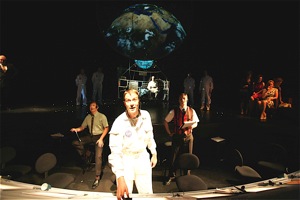
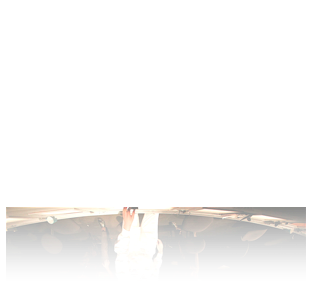
David Ashley as Mike Collins

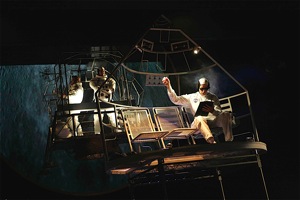
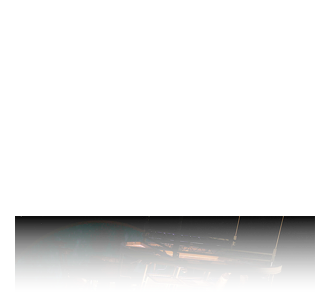
In Lunar Orbit
The Times
Dark Side of the Moon- 4****
Benedict Nightingale
Some experiences are so intense that your life more or less stops after them. That may be the most unsettling of the many discoveries that American astronauts have made - and none more so than Buzz Aldrin, who followed Neil Armstrong on to the Moon in 1969 and, as Stephen Edwards's musical reminds us, landed up deeply depressed in an asylum.
Edwards wrote, composed and directed the show, which may be too much even for so gifted a man.
But it's as ambitious and spectacularly staged a show as I've seen at any regional rep - and it successfully drew me into the excitement of a Moon mission that begins with
President Kennedy's reckless-seeming space promises and ends with Glyn Kerslake's affable Armstrong and Carter's Aldrin descending by pod into a stony, desolate Sea of Tranquility.
The front of the stage is a tense, tightly packed Houston control. Behind it wives and children watch TV sets, and behind and above them there's a large, skeletal throne that serves as a cockpit for the Gemini and Apollo astronauts. And much, maybe too much, is packed into the show's three hours: technical preparation, earnest arguments, suppressed displays of ambition from men avid for (literally) starring roles, conjugal anxiety and anger, the death of Gus Grissom in an exploding rocket, slow-motion hopping on the Moon itself, ticker-tape parades, triumphant yet enervating meetings with drunk senators and a President Nixon who unnervingly resembles a squashed Chairman Mao. There's even a Rapunzel-like Moon goddess trailing hair almost as long as her silvery train.
It's she or (rather) her magical Moon that obsesses Carter's Aldrin, who has the class and charisma to give a potentially scattered evening focus and coherence. Is he the victim of family suicides and a dominating, pushy
father? Well, he ends up in his dressing-gown, inarticulately slumped amid the adoring, clamorous mobs. But if he couldn't talk the talk, he did moonwalk the moonwalk - and as he sings, his voice rising to a desperate shriek, those fiercely concentrated moments were "wonderful, wonderful, WONDERFUL".
Prologue
excerpt 1
Michael Remick as President Kennedy
Our President is Nuts
excerpt 2
Ben Sleep as Gus,
Maurice Clarke as Deke & Keiron Crook as Al
Crew of Apollo 8
My Reward Would Be Regret excerpt 4
Becky Loch as Joan Aldrin
I Promise
excerpt 6
Cheryl McAvoy & Glyn Kerslake
as Jan & Neil Armstrong
T Minus 3 Minutes & Counting excerpt 7
Full Company

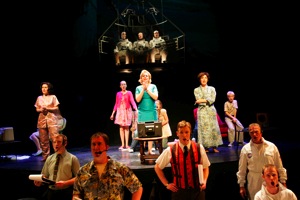
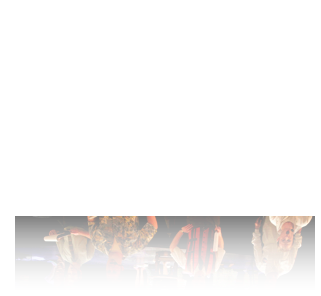
please play excerpts below

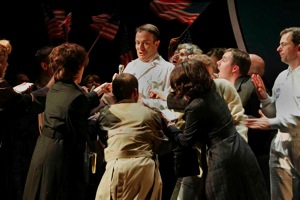
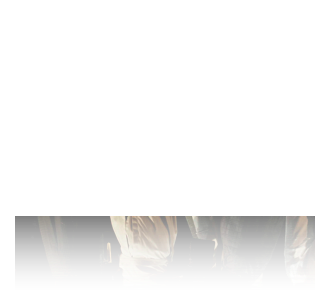
What Was It Like?
excerpt 8
Full Company
Mystery Creates Wonder
excerpt 9
Glyn Kerslake as Neil Armstrong
We Crashed Into The Moon
excerpt 5
Glen Carter & David Ashley
as Buzz & Mike
The Most Hated Man In History
excerpt 10
Annalene Beechey as Pat Collins

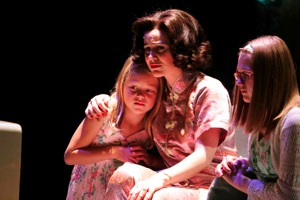
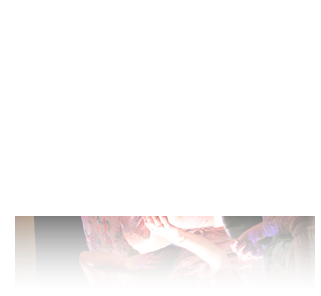

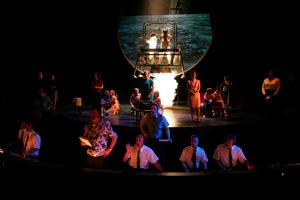
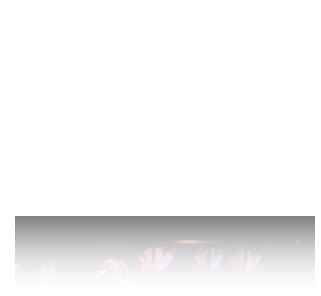
The Lunar Landing
excerpt 11
Full Company
The Melancholy of All Things Done
excerpt 12
Full Company

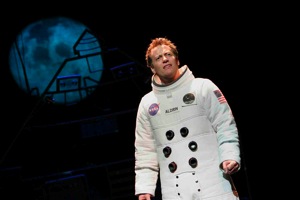
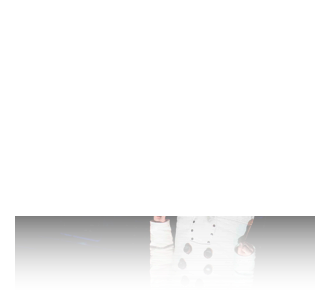
Sea of Destiny
excerpt 3
Glen Carter as Buzz Aldrin

